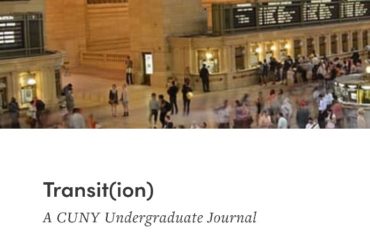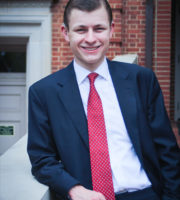
New journal ‘reflects the replacement of ideology for education,’ CUNY professor told The College Fix
The City University of New York’s new systemwide undergraduate journal, run by English Ph.D. students, proposes to reevaluate grammar, academic language and “colonial notions of correctness.”
“Transit(ion), CUNY’s newest undergraduate academic journal, is issuing a CFP [call for papers] for its inaugural issue,” according to a document announcing its launch.
“This publication is run by Ph.D. students in the CUNY Graduate Center’s English department, and we desire to uplift undergraduate students across the CUNY-verse by highlighting the compelling writing and ideas that are being produced in classrooms at our university,” it stated.
Submissions are due July 15 for the publication, which will accept entries from across CUNY’s 25 campuses.
“As part of our mission, we aim to upend and disrupt colonial notions of correctness, academic vernacular, technologies of grammar and prioritize the value of critical thinking and the nuanced development of ideas,” the document stated.
“For our first issue, we are asking students to submit papers that speak to our namesake: transition,” it stated. “CUNY students are constantly in transit, whether that means using the MTA to commute to class, progressing through their degrees, or growing as individuals.”
Asked to weigh in on the new endeavor, business Professor Mitchell Langbert of CUNY’s Brooklyn College said the new journal’s call for papers “reflects the replacement of ideology for education that has occurred in much of higher education.”
“The journal claims that grammatical writing reflects colonialism, and it focuses on issues like gender identity that lend themselves to the ideology of victimization and bad writing that permeates CUNY’s liberal arts departments,” Langbert told The College Fix in an email interview.
DeVaughn Harris and Rani Srinivasan, Ph.D. students in the CUNY Graduate Center’s English department, took the lead on organizing the journal.
For the first issue, they seek pieces that treat the subject of “transition,” which they characterize as a fact of life for students constantly “using the MTA to commute to class, progressing through their degrees, or growing as individuals.”
Potential first-issue paper topics “include, but are not limited to, gender identity, immigration, cultural identity, travel experiences, and “a definition of transition,” the organizers wrote.
Noting that writers need not “strictly align with the field of English studies,” the organizers suggested that writers consider transition through the lens of “literature and the humanities” or “transitions within our own lives.”
In his email to The Fix, Professor Langbert identified the journal as characteristic of CUNY English departments, which he argued “have largely given up teaching writing and have engaged in self-indulgent ideological advocacy and posturing.”
Langbert added that Transit(ion) “appears to reflect this replacement of education with ideology at CUNY.”
Elaborating on his claim of declining standards, Langbert told The Fix that at Brooklyn College, “the English Department openly stated to me that they do not correct writing.”
Across the CUNY system, Langbert added, “the English departments avoid teaching grammatical writing.”
“I have heard multiple anecdotes from my students, who often work and who have been told that they can’t move up in their companies because CUNY failed to teach them writing,” Langbert told The Fix.
Langbert has long investigated the extent to which, as he puts it, “liberal arts subjects like history and English in universities [have] been corrupted by ideology.”
A study Langbert published in 2018 found a Democrat-to-Republican “ratio of 17.4:1 in history departments and a 48.3:1 D:R ratio in English departments of liberal arts colleges,” he told The Fix.
“The political registration of full-time, PhD.-holding professors in top-tier liberal arts colleges is overwhelmingly Democratic,” Langbert wrote in “Homogenous: The Political Affiliations of Elite Liberal Arts College Faculty,” published in the journal Academic Questions.
The Fix emailed Srinivasan, the journal editor, to ask her to elaborate about the intent to “disrupt colonial notions of correctness, academic vernacular, [and] technologies of grammar,” and more precisely, what the journal means by the words and phrases “colonial,” “correctness,” “academic vernacular,” and “technologies of grammar.”
The Fix also asked Srinivasan about how the journal’s launch has been received at CUNY and beyond.
No response has been received.
MORE: Academic journal editor faces cancel attempt for allowing debate on transgenderism
IMAGE: City University of New York





Please join the conversation about our stories on Facebook, Twitter, Instagram, Reddit, MeWe, Rumble, Gab, Minds and Gettr.